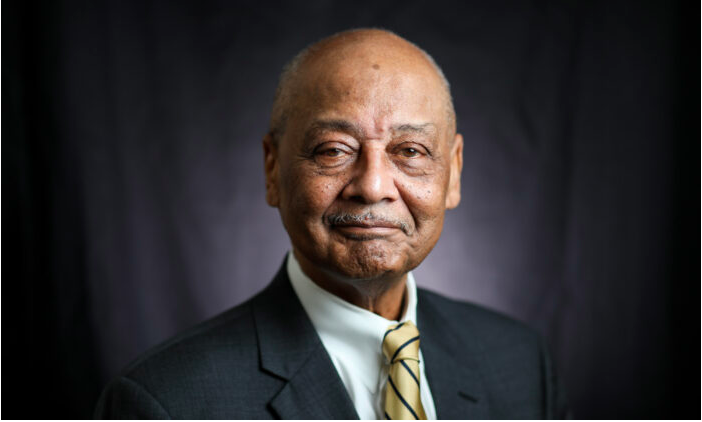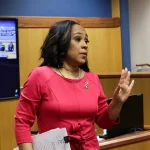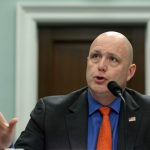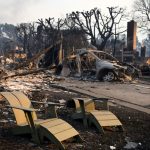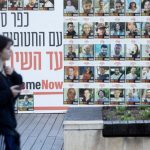Robert Woodson was a young social worker in Pasadena, California, in the 1960s when he witnessed something no one had told him was possible.
A young ex-gang member had completely changed his ways, and he told Woodson that though he changed his character, he still had the experience of a gangster and looked the part, too, and this was what allowed him to have an advantage on the streets. He and several other ex-gang members did youth outreach, and they commanded the respect they needed to have an influence, but a positive one.
“I saw how these young gang members were still able to entice their peers who were in that troubled life to pursue peace,” Woodson said. “I worked closely with them for 10 weeks … and I marveled at how effective they were.
“That was my first revelation—as a young social worker, what I saw on the streets was nothing like what I learned in the university. I had a sharp contrast between what I learned in the university about human change and growth and development, and actually being in a laboratory where people that others had given up on then were dramatically transformed and redeemed.
“I said, there’s something going on here that I didn’t learn in class.”
He found himself on the lookout for other stories and remedies that brought transformation and redemption, and he saw similar principles. “Then the rest of my career I spent validating and re-validating that approach.”
Implementing these success-based local methods is the foundation of what the Woodson Center does. The Washington-based nonprofit, originally called the Center for Neighborhood Enterprise, was founded in 1981 to help empower local organizations to help their communities and has changed lives with initiatives such as the Violence-Free Zones that help troubled schools improve student behavior and training that has equipped thousands of people to improve their own communities.
These communities that governments and organizations so want to help in fact contain great untapped resources, but they are often ignored. Woodson founded his organization to change that.
The Interest of the Poor
In the early 1960s, Woodson was an activist and organizer with the civil rights movement, but over time he grew disillusioned.
“I was leading demonstrations in the early ’60s and we were picketing outside of pharmaceutical companies and when they desegregated, they hired nine black PhDs, and when we asked them to join our movement, they said they got their jobs because they were qualified, not because of the sacrifice we had made. This happened a couple of times,” Woodson said.
Again and again, he saw that the interests of the middle-class civil rights movement leaders didn’t align with those of low-income communities. Worse, the policy victories brought about by those leaders hurt low-income communities, and the middle-class leaders and their families weren’t the ones who had to suffer the consequences of their policies.
“There’s always been this bifurcation in the black community over the way forward, but the will and wishes of the middle-class leadership always prevailed to the detriment of low-income people,” Woodson said.
In Boston in the 1970s, for instance, there was debate over desegregation. Low-income neighborhoods said they wanted their local schools strengthened, but civil rights leadership wanted busing to desegregate schools, and that’s what they got.
“They were bused in many cases from exterior superior black schools to inferior white schools,” Woodson said. “But none of the civil rights leaders had their children on the buses.
“So they have been the bane of my existence, because many of the middle-class leadership advocates policies and programs for which they don’t have to suffer the consequence of their advocacy. Like the left saying, ‘Defund the police’—they don’t live in those neighborhoods, they live in safe and secure neighborhoods.
“It has nothing to do with the interest of the poor but had everything to do with what’s convenient to who are providing services to the poor.”
Woodson didn’t see anyone representing low-income communities and leaders in public policy.
“People on the left exploited them and used them to promote their agenda, and people on the right were ignoring them,” Woodson said. “Both the left and the right talk about the poor as if they have no agency—everything they do or propose is always imposed on the poor from the outside.”
Woodson set out to create an intermediary institution to bridge low-income leaders with the larger policy community, and he decided to do it by applying free-market economic principles to the social economy.
“In a market economy we care less about the personal credentials than what [people] produce, but in a social economy we care very little about outcomes and only inputs, we only care about the credentials of those who serve the poor,” he said.
“It’s been that way for the last 60 years and it’s elitism more than racism, the assumption that uneducated, untutored people are unwise, and therefore incapable of making informed decisions for themselves; that’s the general assumption of people on both the left and the right, and therefore the poor must be rescued from themselves.”
The status quo is that we’ve had 60 years of failed social policies and $22 trillion spent on the poor without having alleviated poverty. Woodson says it isn’t because we can’t solve these problems, but we have incentivized not ending poverty. It has become an industry, and the bulk of funding goes toward organizations serving the poor, and not the poor themselves.
“So they ask not which problems are solvable but which are fundable,” Woodson said. “If your job right now was dependent on having 20 people dependent on you and your services, what motivation would you have to make them independent if everyone who left your care meant diminishing your income? So it doesn’t matter how compassionate you are, your strategic interest is at odds with the strategic interest of the poor.”
He laughed and recalled his friend in Wisconsin who is currently working on building a cabin. “His electrician’s a drunk and his carpenter has one leg. But their value to him was their skill,” he said. “But if my friend was a disabilities director their value to him would have been their disabilities—as long as they maintain their disability, their value to him is maintained. So we have structural disincentives for ending poverty.”
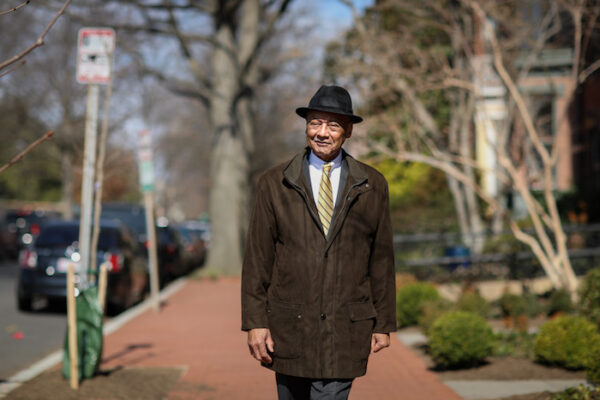
The Harbormasters
What truly works instead is when one taps into resources that are indigenous to the community, Woodson said.
When he goes into a community, he knocks on doors and asks people who they turn to in times of crisis.
“If you assume that a community is lacking of any resources you will never ask these kinds of questions,” he said. “You’ve got to find the harbormasters, people who know the terrain of their community.”
He takes the term from political scientist James C. Scott’s “Seeing Like a State,” which describes two types of knowledge: “episteme,” or the academic knowledge you can learn in a university, and “metis,” the local, tactical, common sense type of knowledge. It’s comparable to how no matter how learned a sea captain you are, when you get to port, you need to turn the vessel over to the local harbormaster who possesses that tactical knowledge, Woodson said.
“They know all the personalities, they know the strengths, the hazards, and you’ve got to go in and find them. But if you don’t believe that a community has capacity or agents of potential uplift, you’ll never go looking for it,” Woodson said. “If you can look beyond the signs of pathology and go in and still look for signs of strength, you will find it.”
So he knocks on doors, and in a short amount of time, the same names will keep popping up. Soon he will have in hand the names of three pillars of the community. Then he talks to those three, and gets 10 more names, and then 50. These are people who solve problems, people who run the moral centers of the community, people who know everybody else.
Woodson has written a whole book about who these change agents are; he calls them the “Josephs,” a reference to Joseph from the book of Genesis, who was betrayed by his family and sold into slavery and suffers but doesn’t become bitter. Woodson looks for those who refuse to succumb to their circumstances, and those who may have done so but through the grace of God are redeemed and become grassroots healing agents of the community.
“The two [types of ‘Joseph’] became powerful witnesses of how transformation and redemption are possible,” he said. They’re invaluable to their communities, because they show those around them that success from these same roots is possible.
A Spiritual Need
At the root of it, these aren’t truly economic problems but spiritual ones, Woodson added.
“I saw people who were rich and spiritually poor, and yet I’ve seen people who are materially poor and who are spiritually rich,” he said. “And I’ve seen how people who are spiritually rich can prosper under the worst of circumstances.”
Just as one might see the trash on the street and the run-down buildings of a neighborhood and dismiss it as a community with no resources, one might look at the Mercedes parked in driveways of another community and mistakenly believe people living there are well off, Woodson said. Yet in some of these well-to-do-looking communities, such as Silicon Valley, the suicide rate of teenagers is six times the national average.
“In order to gain a sense of reality, you’ve got to look beyond the superficial,” he said. “Sometimes we’re blinded by the exterior and we don’t take the time to look at the interior.”
Woodson has seen spiritual healing lead people to redemption countless times in his career, beginning decades ago when a good friend of his rehabilitated an entire street gang.
Leon Watkins, who died in 2018, spoke about how many young people view their gang life in the same way they would a faith, and you’ll get nowhere with them by dismissing it. Many gang members came from religious families and turned away from the faith they were born into because they saw people speaking good words and doing bad deeds, and so sought out identity and community and the opportunity to rise in ranks elsewhere: the gangs.
Watkins knew these young people—many who were really still kids—held deep pain, but also buried dreams. He knew the way to get through to each was to treat him as an individual, so he would “come to believe he has a future and that he is worth something.”
Woodson knew Watkins decades ago when a gang was terrorizing Watkins’s neighborhood; eventually Watkins got fed up and put up wanted posters, which caused the gang to search for him. Finally, he agreed to meet them: 5 p.m., behind his house. They agreed, and two trucks full of armed young people showed up.
“He said, ‘I want to talk to you about your life,’” Woodson said. And then Watkins proceeded to sit on a trash can for three hours just listening to this gang leader.
“The next day he had him in Bible study, and in five days he had the whole 26-member gang in Bible study,” Woodson said. “He turned that group around from terrorizing that community, to they then helping rebuild it. I had the chance to witness this with my own eyes.”
Woodson, Watkins, and others who do this work make lifelong friends and relationships with people who become like family. There are people Woodson says he’s known since they were 16, who are grandparents in their 50s now.
“Because all of us, when we met these young people, we said if you commit your life to peace, we will commit our life to you,” Woodson said. “I have 25 young adults who are like an extension of my family.”
“I would say that 80 percent of my closest friends are ex-something,” he said with a laugh. “They’ve got letters in front of their names, not the back of them. And they have become my extended sons.”
In all of his years working with low-income communities, he’s only known of one suicide, Woodson added. One young man was new to the organization, but two days later he left and shot himself.
Woodson immediately called up the young people in the organization from across the country for an emergency retreat that lasted the weekend.
“The theme was, ‘What do you do when your well runs dry?’ I realized I had to feed into them as leaders, and say to them, you just put yourself on your agenda as well,” Woodson said. The way training in his organization works is that every trainee is a teacher, too, bringing their own stories to the table, and Woodson says everything he has learned has been from the people he served.
One young man in the group was an associate pastor, and he told the group he had had a busy schedule traveling all over the country, stopping home just long enough to get a change of clothes sometimes. Then one day, he came home to find his mother-in-law’s car parked outside, and knew there was trouble. He went inside to find his wife calling for a divorce and demanding he leave or she would take the children and leave.
“He went back and humbled himself and begged his wife for forgiveness, but more importantly, he changed his schedule,” Woodson said.
“I have been the recipient of hundreds of lessons like that,” Woodson said. “I tell people, you show me a tired, frustrated organization and I’ll show you a tired and frustrated person—because we have to give over to people things that we do well, not just the things we don’t like. That’s another part of my training with my groups: Give over to others things that are fun to do.”
A Calling
Woodson has compiled the lessons he’s learned over the decades working with these neighborhoods into a new book “Lessons From the Least of These: The Woodson Principles,” out this month.
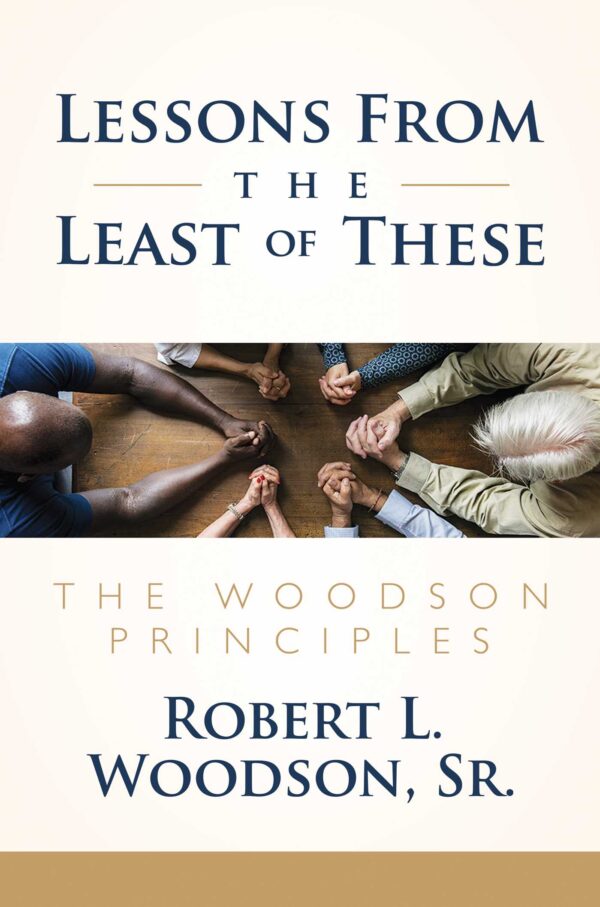
“That will guide people in understanding themselves, and guide people into understanding how to help without injuring with the helping hand,” Woodson said. It’s filled with stories of what he’s witnessed, and the core of it is 10 principles he believes we need, principles such as transparency, humility, trustworthiness, and honesty.
Retirement is on the horizon, he added, probably within the year. He looks forward to handing the organization over to someone younger and guiding them, though retiring doesn’t mean he will stop living by the principles that have guided his work for decades.
“I tell people, you retire from a career, you expire from a calling. So I will expire from this,” he said with a laugh.
That said, he is looking forward to some more time for golf, and perhaps visiting Wales. “I listen to Welsh music, and I love listening to bagpipes and my wife, it drives her crazy.” He collects Welsh music, too, and says he can name all the bagpipe regiments and would love the opportunity to visit Wales one day and see them play.
“I’ve been blessed to participate in this exchange, from having touched the lives of hundreds of people who’ve left their imprint on me; I’m able to be a conduit,” he said. “I am who I serve. I have no ambitions, no desires, nothing.”
It’s a way of life he wholeheartedly recommends.
“The best way for people to become healed is by serving others,” he said.

